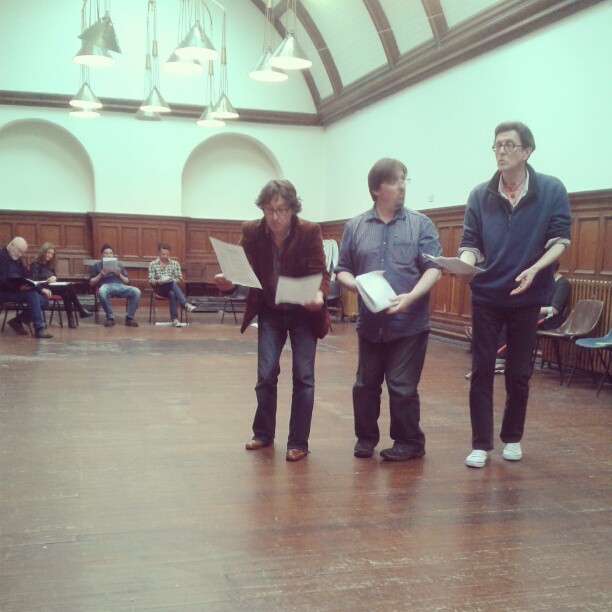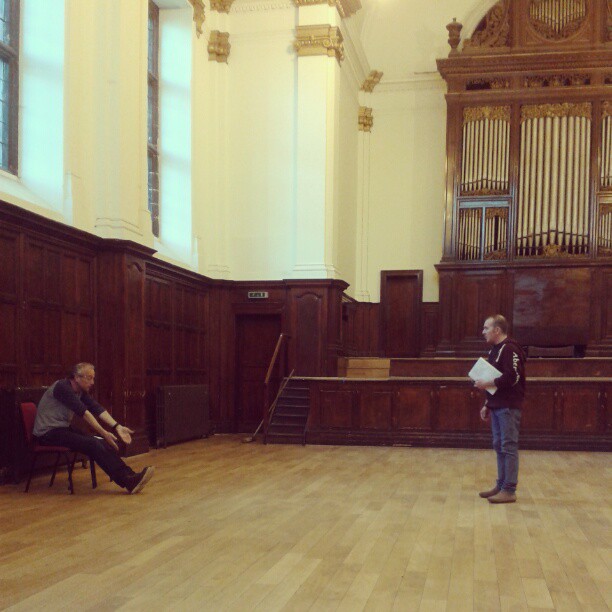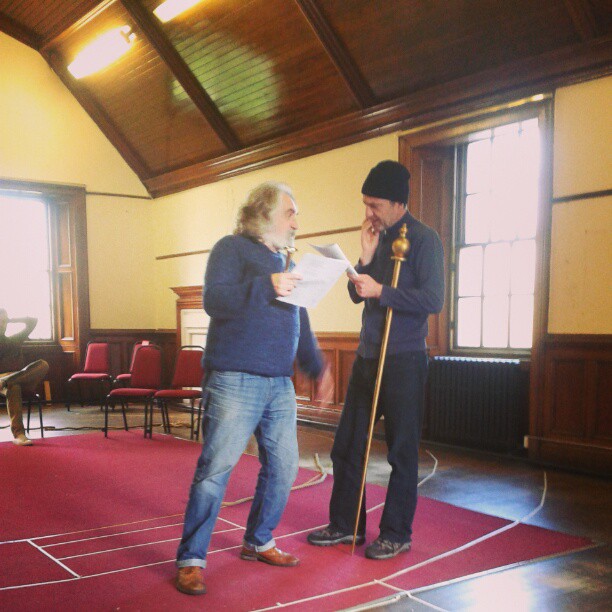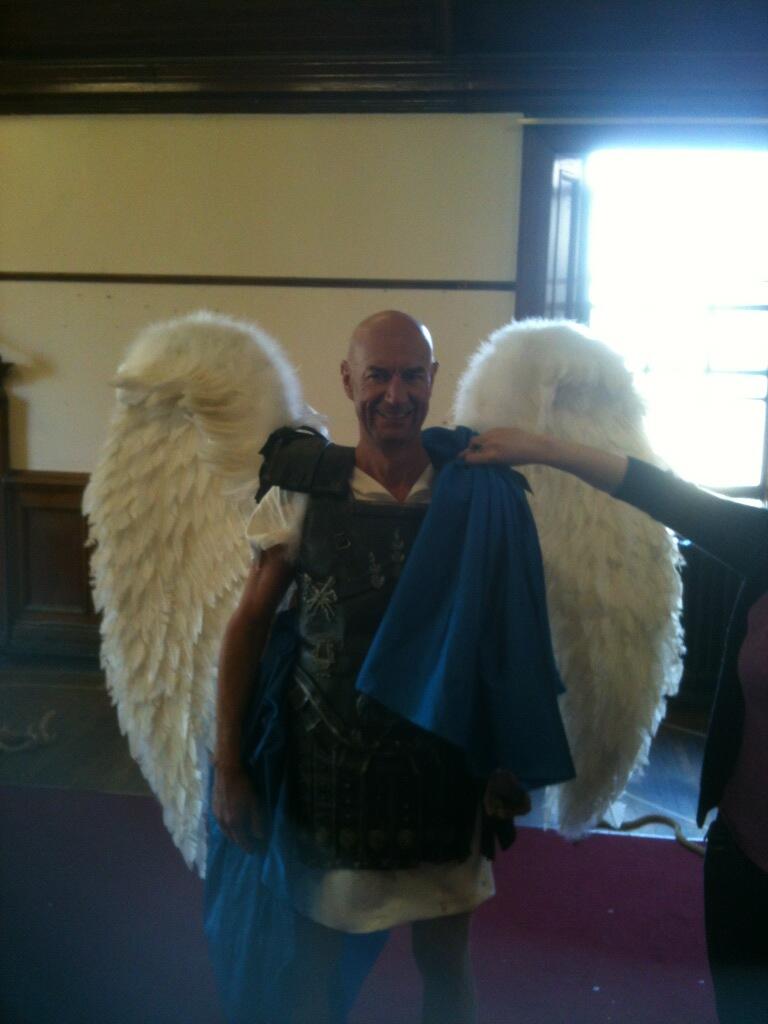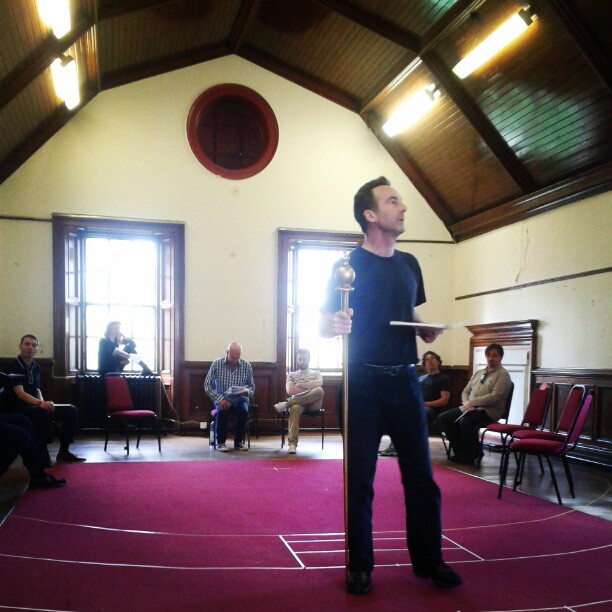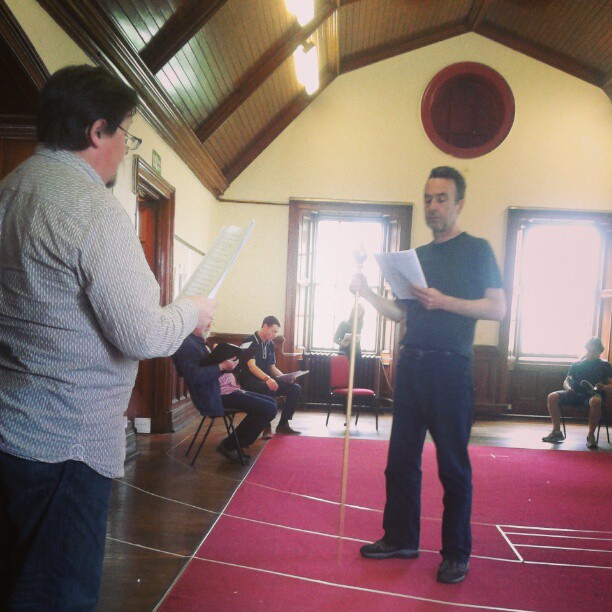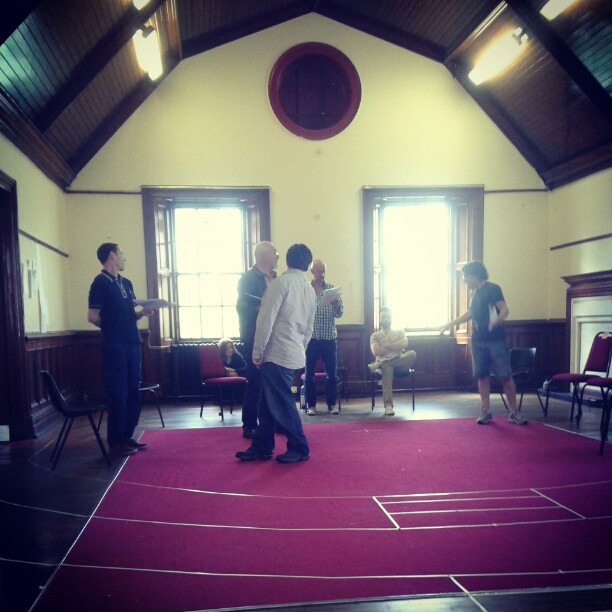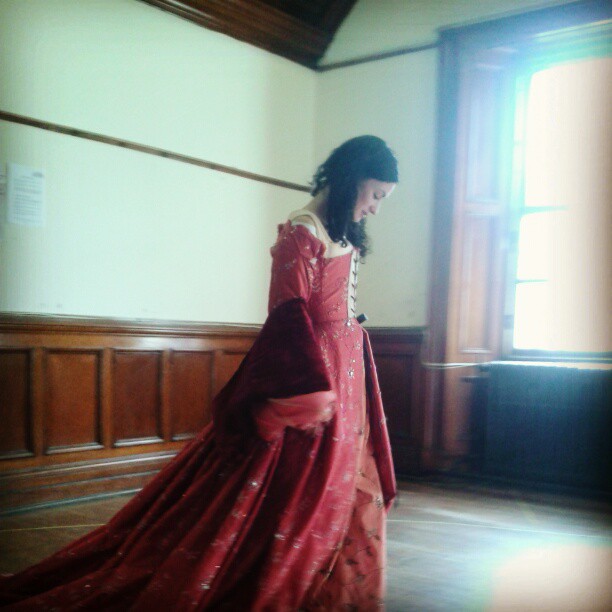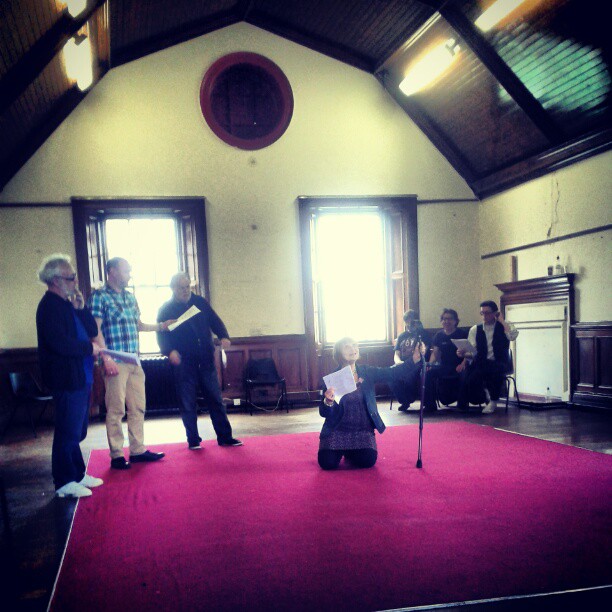Lots of important discoveries today so a rather long blog…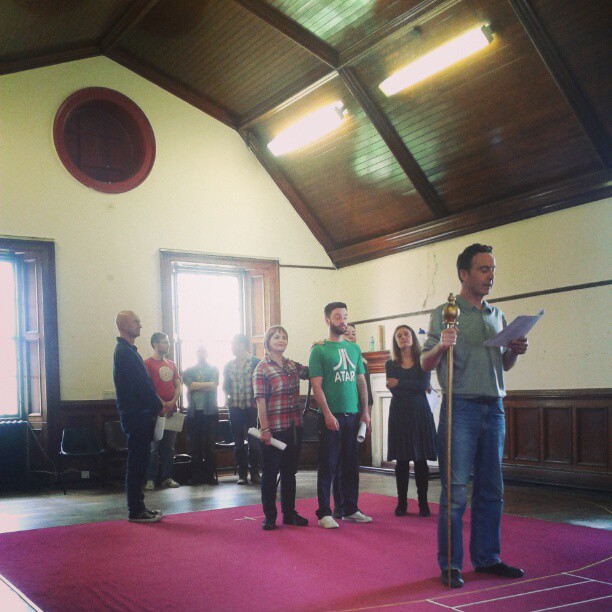
Today we worked on the first entrance of Divine Correction. What was interesting was the extent to which Tam Dean Burnâs entry created a whole new atmosphere within the world of the play. Good Counsel, Gerda Stevenson, Chastity, Cara Kelly, and Verity, Alison Peebles, had all tried to reform Rex Humanitus and had failed. Suddenly Divine Correction changed the dynamic. We spent a considerable amount of time on Divine Correctionâs provocative question â What is a King? And his equally radical answer â Nought but an officer. Discussing this line in the context of a performance brought home to me quite how potentially dangerous and subversive the question is since what Lyndsay was doing here is asking a heterogeneous audience of people in Cupar and Edinburgh to reflect on the nature of kingship
It was interesting discussing with the actors and directors the nature of Lyndsayâs politics. It was a reminder at how impoverished, in some ways, modern political discourse is since during the discussion one was constantly tempted to separate moral, economic and social issues. Of course in Lyndsayâs world such a separation would have been meaningless, indeed it would have represented the worst behaviour of, as Lyndsay saw it, the clergy. Ane Satyre is concerned with the idea of a commonweal founded on equity where everyone lives within their bounds. In these terms it embodies a very similar approach to politics as that articulated in the C Text of Piers Ploughman. At one level this is a conservative model of politics since it looks back to a mythical golden age where the classes or estates each knew and respected the boundaries of appropriate behaviour. But it could also form the basis of a radical critique of society and in particular those in power. After all Divine Correctionâs agenda is a restorative one but is it articulated through radical language and there is a constant sense that those who transgress against the social bond, disregard-less of status or position will be punished.
In the afternoon, we looked at the rooting out of Sensualitie from the realm of Scotland and it was really striking to see female figures of virtuous rule on-stage alongside Divine Correction.
There was a discussion of the unusual word âconsociableâ â the term used to describe the relationship that the King is now to have with Verity, Chastity and Good Counsel – and its emphasis on âsocietyâ as a result of having allegories embodied on the stage, figuring the relationship between king and virtue as interpersonal.  The same is true of the moment when Sensualitie gets absorbed into the Church, in our staging through being pulled onto Spiritualityâs knee and pawed by the Abbot.
But the really interesting part was seeing the staging of Rexâs acceptance of Divine Correctionâs Counsel and the departing of Sensualitie form the court. As it is being performed, Rex listens to Divine Correction only as a secondary effect of Sensualitie leaving him, rather than from making a positive choice to do so. The moment really strengthens the version of Rex we are building as a weak and easily-led King. As the actor James Mackenzie said to me, he only listens to Correction because he realises he is âalone and Divine Correction is the only person who seems to be offering him any counselâ rather than through his recognition of Godâs emissaryâs authority.
The final call was with the Pardoner to look at the section where he divorces the Suiter from his wife during the âInterludeâ (what we call the âInterval playâ). The strong rhythm of this section was quickly identified, and the fact that all of the dialogue is divided into six-line stanzas, largely lines of iambic tetrameter followed by a line of iambic trimeter. There are clear moments of flying in the piece, and the verse lets it build up to the arse-kissing divorce ritual.  It took quite some time to find the right rhythm and pacing of this section of verse and Greg Thompson noted the paradox of some of the most common characters in the whole play having some of the most technical prosody.
We also had the amazing realization today that we will be opening the play on the same day as the play was performed in 1552 â June 7th!! It must be serendipity.





